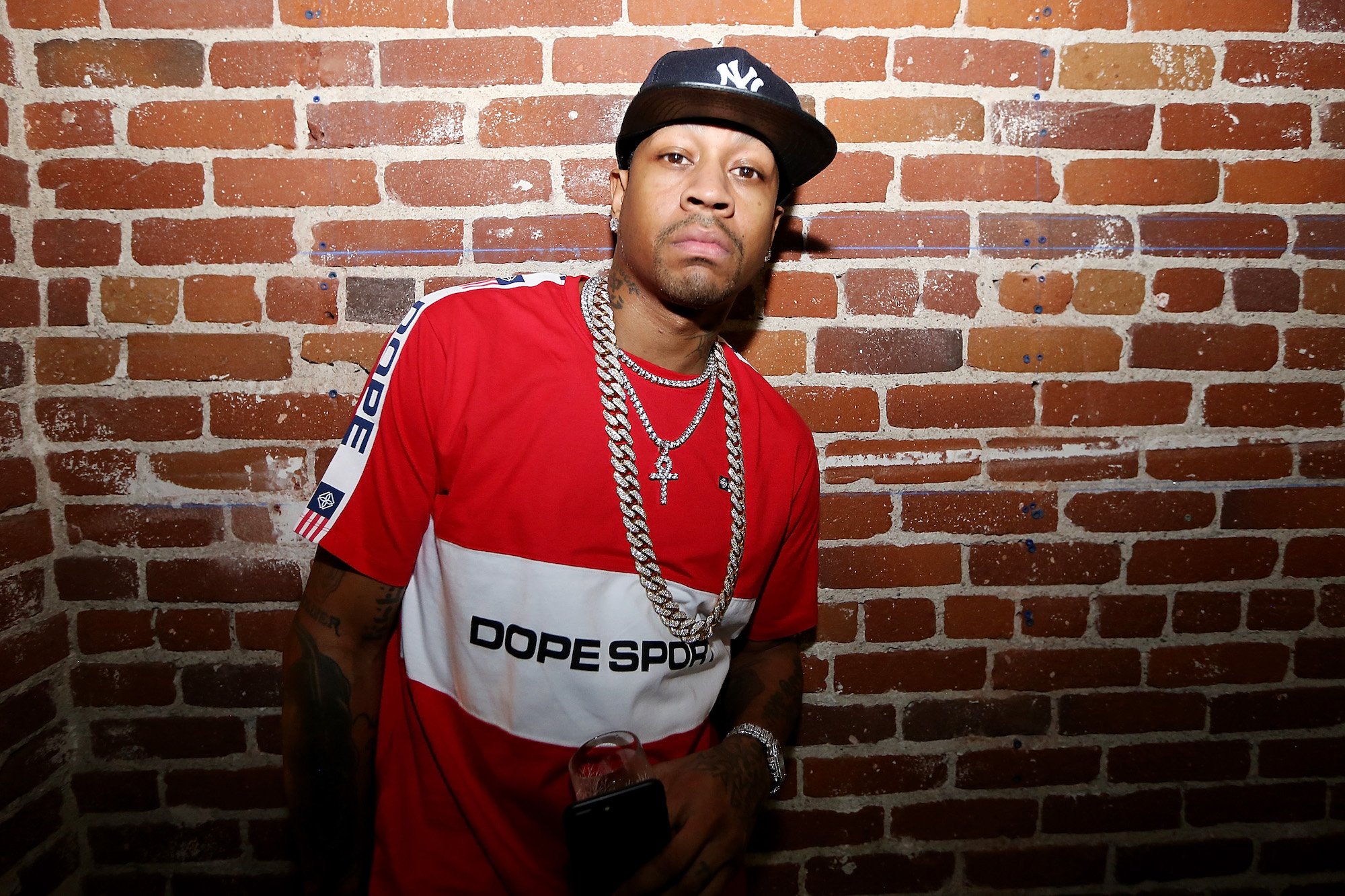Allen Iverson is “Embarrassed“ by His Shelved Rap Album
There’s no greater influence on the marriage between the NBA and hip hop than Allen Iverson. Since coming into the NBA after a tumultuous journey that saw him in and out of prison, Iverson represented a different type of athlete. He embraced tattoos, cornrows, and baggy attire that eventually inspired the league’s dress code. This hip-hop inspiration finally brought him into the recording studio, too. The result, however, was embarrassing.

Hip hop and the NBA
Iverson wasn’t the first NBA player with love for hip-hop. Dating back to the 1980s, several players embraced hip hop and even stepped inside the studio for their music, according to Bleacher Report. Iverson, however, took everything a step further. He didn’t just love hip-hop as a genre of music. Hip-hop made him exactly who he was. His style was on-par with what was popular in the hip-hop culture of the late nineties and early 2000s.
Iverson spoke with a hip-hop cadence, openly embraced his favorite rappers, and dressed in ways that some, namely the commissioner and several coaches, did not approve of. While the ensuing dress-code was coded as a way to make the players look professional, Iverson was a definite influence. After he started, however, a younger generation followed in his footsteps.
In many ways, Iverson was a perfect mix between the old culture of the NBA and the new culture. However, as his name got bigger and his influence spread further, Iverson put his money where his mouth is and recorded an album under the moniker Jewelz.
Jewelz
Iverson dropped a single in 2001 called 40 Bars. The song almost immediately courted controversy thanks to its questionable lyrics, according to USA Today. Throughout the song, Iverson played into his tough-guy image with a slew of homophobic, misogynistic, and otherwise insensitive lyrics. Iverson’s favorite sparring partner, the late David Stern, even commented on the album.
“The lyrics that have been attributed to Allen Iverson’s soon-to-be-released rap CD are coarse, offensive, and anti-social,” said the NBA’s former commissioner (per VH1). “Whatever constitutional rights of free speech an individual may have, there is no constitutional right to participate in the NBA, and I have the power… to disqualify players who engage in offensive conduct — including inappropriate speech.” The album was never released after the onslaught of negative press.
Iverson’s brash attitude was always a part of his brand, and his mercurial relationship with the head of the NBA was nothing new. However, his lyrical content, while on par with much of what was on the radio at the time, was still offensive at the time, and is especially offensive to a modern, more progressive audience. Never one to shy away from a candid conversation, Iverson is aware of this, and he since distanced himself.
Allen Iverson’s embarrassment
Iverson has since said that while he was trying to perform as a character on his album, he now knows how it looked in hindsight. He spoke about his happiness that the full album never came to light in 2015.
“I felt like I was able to do something like that when I wasn’t,” Iverson said (per Sporting News). “I was too big, obviously, to do something like that. Looking back on it, it’s embarrassing when I think about all the kids that could’ve ended up hearing all the things that I was saying and portraying someone that, obviously, I’m not because it was gangster rap and I’m not a gangster. I thought it was an art form just like you see Bruce Willis killing people in movies.”
Iverson is one of the most open players the NBA has ever seen. While this facet to his attitude has been the source of ire, it has also been what endeared him most to fans. To this day, his image has an impact on the NBA, and in a world where many players are also rappers, they can largely thank Iverson for solidifying the NBA’s hip-hop culture. His album, however, is best kept in the vault where it belongs.


